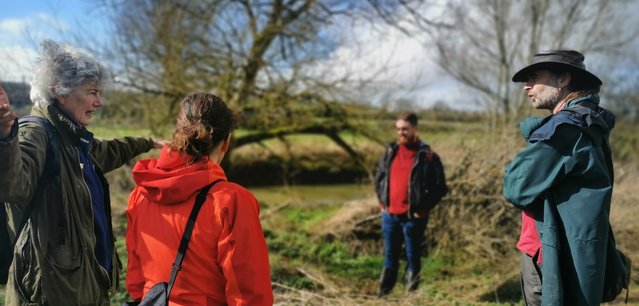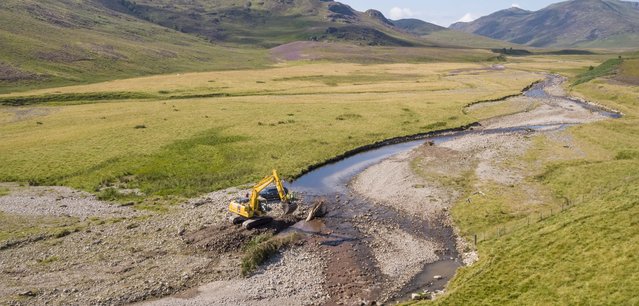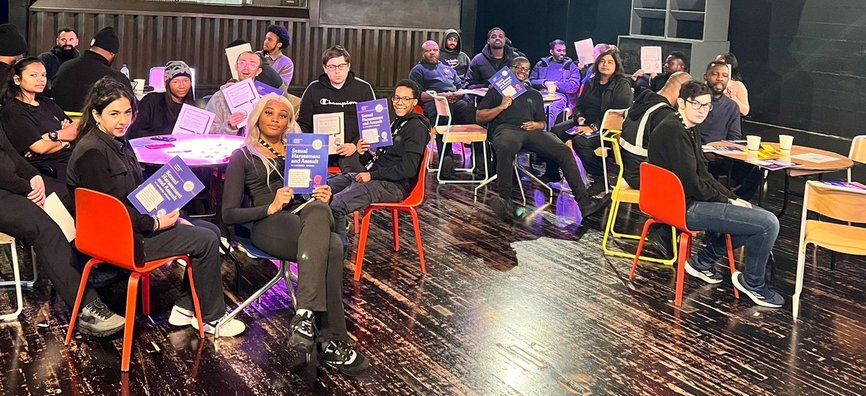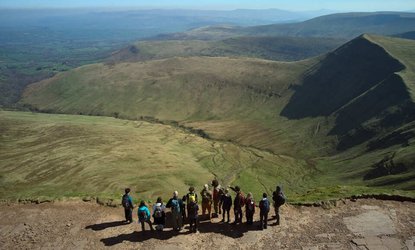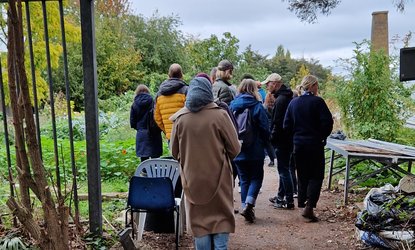We’re pleased to share a report by Resources for Change exploring what’s changed since the launch of our strategy, what progress has been made and what the blockers are, as well as offering recommendations for Esmée and other funders. Simon Wightman, Esmée’s Funding Manager Lead for Our Natural World, shares his reflections on the findings and what’s next for Esmée. He also touches on the potential impact of the Final Report of the Independent Water Commission for our work.
In 2021, we asked Cardiff University Water Research Institute to survey over 100 freshwater professionals about key future challenges and opportunities. Based on their input, we prioritised our resources in five areas:
- Place-based work
- Delivery capacity and coordination
- Policy influence and campaigning
- Data and monitoring
- Green finance
This Resources for Change report assesses our progress through discussions with partners based on these five areas.
You can also see and download the full report here. If you would like to see the report in an alternative format, please email communications@esmeefairbairn.org.uk.
The context and the Final Report of the Independent Water Commission
Before diving into what the mid-strategy review means for our freshwater support, we wanted to note the context given the recent publication of the Final Report of the Independent Water Commission, chaired by Sir Jon Cunliffe and the Government’s announcement that it would abolish Ofwat, replacing it with a “single, powerful regulator responsible for the entire water sector.” This might lead to the most radical overhaul of the water sector in England and Wales for 35 years and will be of interest to those working on freshwater in Scotland and Northern Ireland.
Some stakeholders have raised concerns about the Commission’s scope, noting that nationalisation was excluded from consideration. While for-profit privatisation of the water industry in England has faced criticism related to investment levels, allocation of funds, environmental impacts, executive remuneration, and regulatory effectiveness, there is limited evidence to suggest that alternative models in Wales, Scotland, and Northern Ireland have produced substantially improved results for nature or customers. The Commission advocates for a cross-sectoral approach to water planning, comprehensive reform of sector regulation, enhanced transparency in monitoring and data sharing, and new measures addressing ownership and accountability of water companies. The potential impact of these recommendations will depend on government commitment, such as prioritising long-term environmental and generational needs, ensuring adequate resources for regulatory and planning bodies, and addressing other major sources of pollution, including food and farming, in a joined-up way.
But we also think there is reason for optimism. Freshwater is making headlines in the press, featuring in manifestos, and debated in parliaments because organisations are holding decision-makers to account and communities are mobilised, using data to demonstrate the harm that is being caused to their local environment and demanding change. And there is little sign that will change in the years to come.
Mid-strategy review: what next for Esmée
Focus the funding
Esmée is committed to providing longer-term grants across all our funding streams. Given our fixed grant-making budget, we must balance continued support for proven, high-impact organisations with maintaining capacity to invest in innovative disruptors and new ideas. Our primary focus remains on the priority areas outlined above; however, we recognise the importance of adapting to shifts within the broader funding landscape.
- Data and monitoring: We have supported select initiatives aimed at enhancing capacity and building confidence in citizen science as part of a comprehensive approach to collecting and disseminating information about catchments. The Catchment Systems Thinking Cooperative(CaSTCo), funded through Ofwat’s Innovation Fund, is advancing the standardisation of methodologies and facilitating data sharing. While it is important to avoid redundancy with existing efforts, there is likely an ongoing role for philanthropic funders in ensuring data collected by volunteers is effectively used to inform improved decision-making.
- Place-based work: Our work through the Blue Spaces programme exemplifies the need to strategically allocate our resources. Place-based work will continue to be central to our efforts within Our Natural World, though we recognise it demands adaptability and sustained engagement. Consequently, there will be limitations on the number of locations we can prioritise. We are currently evaluating how best to align this approach with our overall priorities. Given the links between farming, fisheries, freshwater, and marine environments, we can prioritise work that explores these intersections.
Support more collaboration
When knowledge gaps arise or opportunities shift rapidly, we will proactively organise discussions, foster collaboration, share information, and develop projects.
Broaden the debate
Reports such as those from the Independent Water Commission are often structured around specific sectors, which may fail to consider the full range of pressures on water and how those interact. The Commission has proposed establishing a national cross-sectoral strategy for England and Wales with supporting regional plans. However, proposals to consolidate regulator input on a single sector in England could overlook the fact that multiple sectors impact the freshwater environment. For example, if agricultural pollution is not addressed, costs related to treatment may be shifted onto water customers. While there are ongoing efforts across the UK to address the environmental effects of the water sector, similar initiatives for agriculture have yet to emerge at the scale required. Additionally, in areas like chemical pollution, further action may be required to maintain current standards.
Strengthen the sector
The report recommends exploring how we support skills development, retention, and communication in the sector, as well as sharing learning. We want to do more in these areas but are aware that there are existing initiatives seeking to do this. We'll work with supported organisations to identify where we can add value.
Provide a steer
The report notes both appreciation for our flexible funding approach and requests from some organisations for clearer guidance. Our broad freshwater outcomes allow us to support impactful UK-wide projects, given the lack of independent funders in this area. However, being more specific, as with the Blue Spaces call in Wales, has attracted innovative proposals. We'll maintain a broad focus but will continue engaging with those working on freshwater to identify needs, understand impact, and transparently explain our funding decisions.
Maintain our independent approach
Partners interviewed appreciate our independence as a funder. Clean freshwater is crucial for national health and prosperity, prompting government and corporate investment to boost resilience against rising demand and climate change. However, our rivers, lakes, and wetlands are not recovering, and dependent wildlife remains at risk. While our funding alone cannot restore these habitats or people's connection to them, we can support innovation, respond swiftly to new opportunities, and assist efforts to hold polluters and decision-makers accountable. Most importantly, we are committed to maintaining our independent approach.
We hope you enjoy reading the report and welcome feedback. To share your thoughts, send an email to simon@esmeefairbairn.org.uk.
We also want to say a big thank you to everyone who shared their views for the report, and to Resources for Change for their work.
